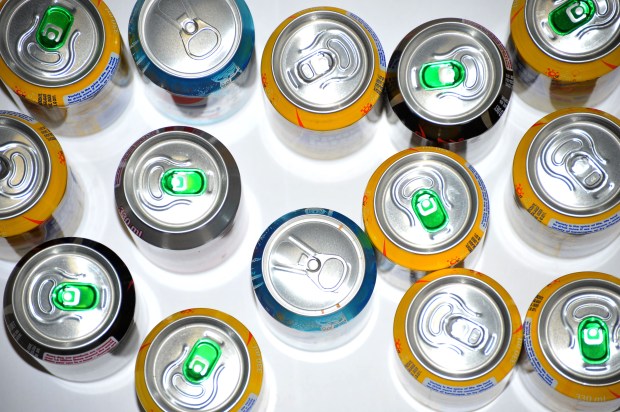Health
Study Links Fizzy Drinks to Increased Liver Disease Risk

Research has revealed that both sugary and diet fizzy drinks significantly increase the risk of non-alcoholic fatty liver disease (NAFLD). The study, which analyzed data from 124,000 participants in the United Kingdom, found that even consuming a single can of these beverages each day can elevate the risk of this serious condition.
The findings, led by Lihe Liu from Soochow University in China, challenge the long-held belief that sugar-free drinks are a healthier choice. Participants who regularly consumed sweetened beverages showed an increased likelihood of developing liver disease by up to 60 percent. Specifically, those who drank at least 250ml of sugar-sweetened drinks daily had a 50 percent higher risk, while diet drink consumers faced a 60 percent increased risk.
Health Implications of Sweetened Beverages
The study highlights that both types of drinks contribute to fat accumulation in the liver. This fat buildup can lead to permanent scarring, obstructing normal liver function and potentially resulting in failure, a condition that can be fatal. Liu stated, “Sugar-sweetened beverages have long been under scrutiny while their ‘diet’ alternatives are often seen as the healthier choice. Our findings challenge the common perception that these drinks are harmless.”
Researchers suggest that the safest approach is to limit both sugary and artificially sweetened beverages in one’s diet. Instead, they recommend water as the optimal choice, as it hydrates the body without contributing to fat accumulation in the liver.
The study also points out that sugary drinks directly increase liver fat because sugar is stored by the body. In contrast, diet drinks may disrupt gut bacteria and insulin production, potentially leading to increased cravings for unhealthy foods. Notably, participants who replaced soft drinks with water experienced a reduction in their liver disease risk.
Understanding Non-Alcoholic Fatty Liver Disease
NAFLD has various stages, and the presence of one stage does not guarantee progression to the next. Early symptoms can include fatigue, low energy, or discomfort in the upper abdomen. Treatment often involves lifestyle changes such as adopting a healthy diet, increasing physical activity, and achieving weight loss, particularly in the earlier stages.
The stages of NAFLD range from simple fat accumulation in the liver without damage to advanced cirrhosis, characterized by significant scarring. The British Liver Trust emphasizes that while some liver damage can be repaired, excessive scarring can lead to serious conditions such as liver cancer and liver failure.
As rates of liver disease continue to rise in the UK, with one in five individuals potentially affected, the implications of this research are profound. The findings underscore the importance of reevaluating dietary choices and the role of beverages in liver health.
-

 Health3 months ago
Health3 months agoNeurologist Warns Excessive Use of Supplements Can Harm Brain
-

 Health3 months ago
Health3 months agoFiona Phillips’ Husband Shares Heartfelt Update on Her Alzheimer’s Journey
-

 Science2 months ago
Science2 months agoBrian Cox Addresses Claims of Alien Probe in 3I/ATLAS Discovery
-

 Science2 months ago
Science2 months agoNASA Investigates Unusual Comet 3I/ATLAS; New Findings Emerge
-

 Science1 month ago
Science1 month agoScientists Examine 3I/ATLAS: Alien Artifact or Cosmic Oddity?
-

 Entertainment5 months ago
Entertainment5 months agoKerry Katona Discusses Future Baby Plans and Brian McFadden’s Wedding
-

 Science1 month ago
Science1 month agoNASA Investigates Speedy Object 3I/ATLAS, Sparking Speculation
-

 Entertainment4 months ago
Entertainment4 months agoEmmerdale Faces Tension as Dylan and April’s Lives Hang in the Balance
-

 World3 months ago
World3 months agoCole Palmer’s Cryptic Message to Kobbie Mainoo Following Loan Talks
-

 Science1 month ago
Science1 month agoNASA Scientists Explore Origins of 3I/ATLAS, a Fast-Moving Visitor
-

 Entertainment2 months ago
Entertainment2 months agoLewis Cope Addresses Accusations of Dance Training Advantage
-

 Entertainment4 months ago
Entertainment4 months agoMajor Cast Changes at Coronation Street: Exits and Returns in 2025









